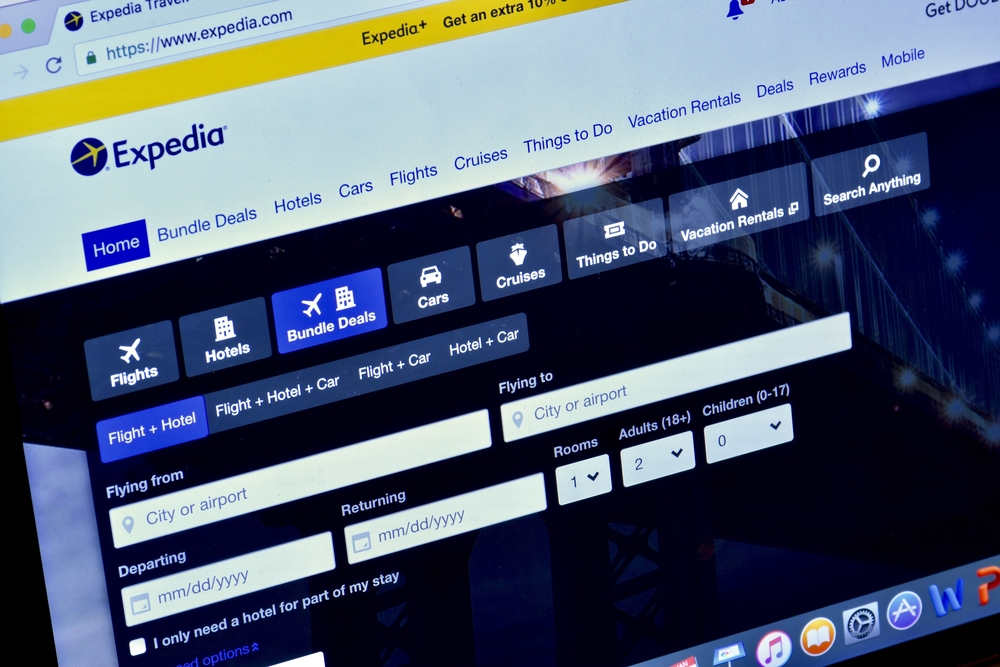Household Bills
Expedia, Trivago and other holiday booking sites use ‘misleading’ sales tactics

Holiday booking sites including Expedia, Trivago and Hotels.com use “dodgy” tactics to rip holidaymakers off, according to an investigation. The sites have responded by agreeing to change their ways.
The Competition and Markets Authority (CMA) launched a probe into booking sites last year due to “serious concerns” around issues like pressure selling, misleading discount claims, the effect of commission on how hotels are ordered on sites, and hidden charges.
The CMA said it was concerned that practices, such as giving a false impression of a room’s popularity, or not displaying the full cost of a room upfront could mislead people, stop them finding the best deal, and potentially break consumer protection law.
All companies under investigation – Expedia, Booking.com, Agoda, Hotels.com, ebookers and Trivago – have voluntarily agreed to make changes, which must be implemented by 1 September at the latest.
What will change?
As part of the agreed changes, booking sites will tell people when search results have been affected by a hotel paying commission.
They will no longer give a false impression of the availability or popularity of a hotel or rush customers into making a booking decision based on incomplete information and won’t place sold out hotels within search results to pressure people to book.
The sites have also agreed to be clearer about discounts and to only promote deals that are actually available at the time.
They will also display all compulsory charges, such as taxes, booking or resort fees in the headline price.
CMA chairman Andrew Tyrie said: “The CMA has taken enforcement action to bring to an end misleading sales tactics, hidden charges and other practices in the online hotel booking market. These have been wholly unacceptable.
“Six websites have already given firm undertakings not to engage in these practices. They are some of the largest hotel booking sites. The CMA will now do whatever it can to ensure that the rest of the sector meets the same standards.”
Rory Boland, travel editor at consumer group Which?, said: “We have repeatedly exposed sites like these for using dodgy tactics like pressure selling, sneaky charges, dodgy deals and discount claims so it’s absolutely right that the CMA is taking strong action.
“These changes must now be swiftly implemented to stop these misleading practices, so customers can trust the deals they’re presented with are really deals and are told the total cost of their room upfront when booking a hotel online.”
What the booking sites say
An Expedia spokesperson said: “We continue to believe our practices did not breach any consumer laws. That said, we are surprised and disappointed in the CMA’s description of our partnership with them in the CMA’s press announcement, which we believe mischaracterizes the collaborative and good faith approach taken in establishing industry standards which are new and result in more transparency for consumers than in offline markets.
“We are however pleased the CMA has been clear that it views this new standard as one applicable to all participants in the industry, whether online travel agents, search engines and metasearch sites or the direct sites of accommodation providers.”
A Trivago spokesperson said: “Now that the CMA has established clear guidelines for the UK sector, we will of course follow them to the extent they are applicable to us.”
A Booking.com spokesperson said: “We are constantly optimizing the consumer experience on our website and mobile apps in an ongoing effort to deliver a best-in-class experience for our customers. We test many iterations of content as part of this optimization process to ensure that the information displayed to users is relevant to their booking experience. In concluding our discussions with the CMA we have agreed to test and implement new commitments, like pricing inclusive of all fees, to ensure we meet all standards for consumer transparency in the UK.”